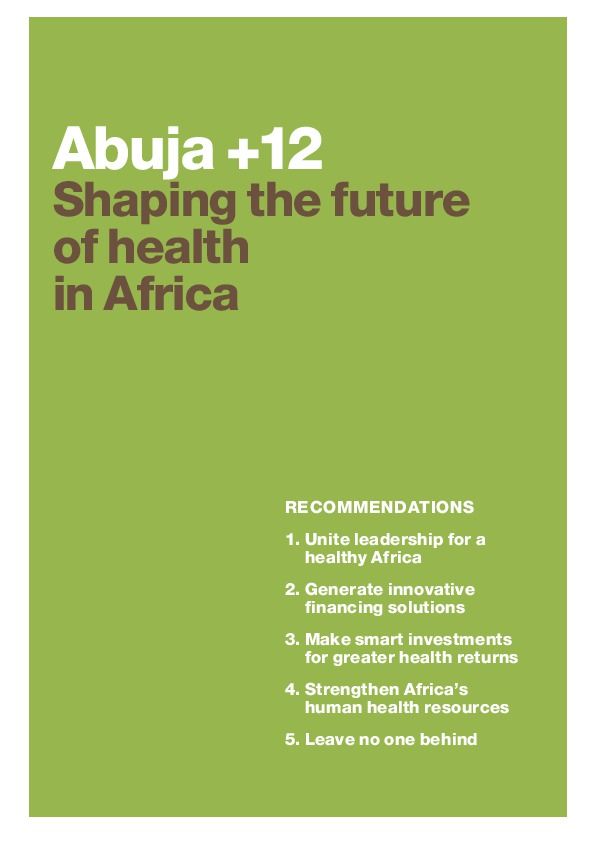Abuja +12 has the potential to be another decisive moment in Africa’s history. If the will is there, Abuja +12 can be a tipping point in Africa’s health crisis. It can be the moment when commitments are cemented, when action is taken and when success becomes inevitable.
